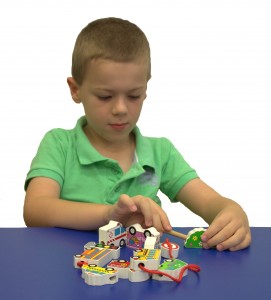
Fine motor skills are important for success at home, preschool and school. Fine motor skills refer to the ability to do purposeful and coordinated actions using controlled movements of the small muscles in the fingers and hands. The movements also need to coordinate with the eyes, for eye hand coordination and the larger muscles of the arms and body for stability. Children develop fine motor skills over time as they practice using their hands to do tasks and activities.
Fine motor skills are important because they are required for many daily activities:
- at home, such as dressing, eating and grooming,
- at preschool and school such as writing, drawing, cutting
- for using tools such as pencils, scissors, brushes, cutlery, laces
- and for using toys to develop play,learning and imagination
Some children may show delays in developing fine motor skills. Difficulties in developing these skills can be related to:
- physical disabilities
- developmental delay
- cognitive or intellectual delays
- sensory difficulties
- lack of motivation, opportunity, practice or interest in fine motor activities
- reduced hand strength
- reduced attention and concentration abilities
- reduced problem solving abilities
- difficulty controlling, planning, sequencing and coordinating movements
So how do I know if my child is developing skills as expected for their age? Children develop skills progressively but they have spurts of development and periods where skills are consolidated and not much seems to be changing. This is a normal part of development. If you are concerned that you child is not developing as expected it is a good idea to get some advice from a trained professional.
Here are some guidelines about what to expect at different ages:
At 12 months babies can:
- clap hands
- point with a finger
- move objects from hand to hand
- reach with a straight elbow
- hold objects between a finger and thumb
- pick up small items with the tip of a finger and thumb
- put objects into a container
At 18 months babies can:
- stack two or three blocks
- scribble with a crayon
- turn pages in a cardboard book a few at a time
- hold an object in one hand and do something to it with the other
- put large pegs in a pegboard
- put one to two shapes in a shape sorter
At 2 years a child can:
- snip with scissors
- stack three or more blocks
- string a few large beads
- copy circles and vertical lines
- turn pages one at a time
At 3 years a child can:
- unscrew lids
- hold crayons with fingers, not fists
- cut paper in half
- use one hand consistently most of the time
- copy simple patterns with blocks
At 4 years a child can:
- copy circles and crosses
- stack five or more blocks
- make balls, roll snakes and pinch shapes with playdough
At 5 to 6 years a child can:
- copy a square and triangle
- use a tripod grasp with thumb and finger for pencils
- button and unbutton a single button
- cut along a line
- stack many small blocks
- colour inside the lines
- write their first name
- be consistently left or right handed
Children develop fine motor skills through practice with a range of activities, tools and materials. Providing your child with a range of age appropriate opportunities will allow them to develop their skills. Here are some ideas to try:
- provide opportunities for craft activities such as painting, cutting and pasting, drawing, collage and stickers
- provide toys which require fine movements such as building and construction sets, Lego, puzzles and threading beads
- provide activities which require aiming at a target, such as throwing bean bags or rolled up socks into a container, balls at a target drawn on a wall or through a hoop
- provide games such as connect four, barrel of monkeys and jenga
- play with tweezers, eye droppers and squeeze bottles
- play with play dough, plasticine, putty and gloop
- do some cooking together, cut, roll, mix, stir and pour
- play with pipe cleaners, and pegs
- play with sand and water, dig, pour and build
Here is a link to a site with lots of fun activities for developing fine motor skills. There are also lots of great activity ideas on the Talking Matters Pinterest page.
If you are concerned about your child's fine motor skills an occupational therapist is the person to see for advice. Occupational therapist can assess your child's skills and advise you on what to do to help your child's development. For more information about occupational therapy check Our website.
Related posts:
Occupational therapy
Body awareness
Calm alert and learning
Playing together
Baby play
The importance of play
Create and learn
Play and floortime
Developing play
Related Blog Posts
If you liked this post you may also like:
The Benefits of Joint Speech Pathology and Occupational Therapy Sessions (SPOT)
The importance of play
Sound Flowers
Sleep - Supporting You Child's Development



